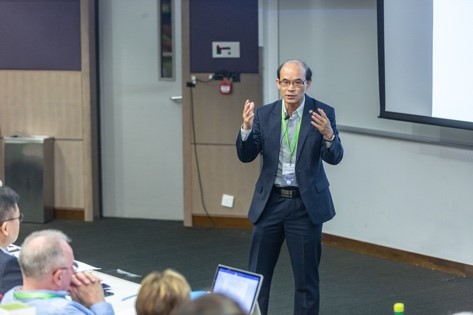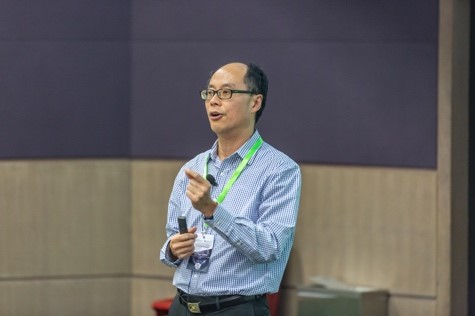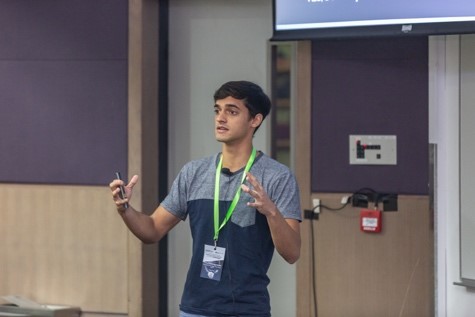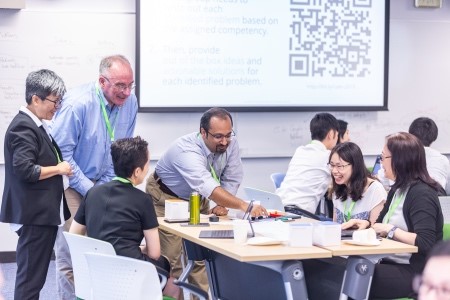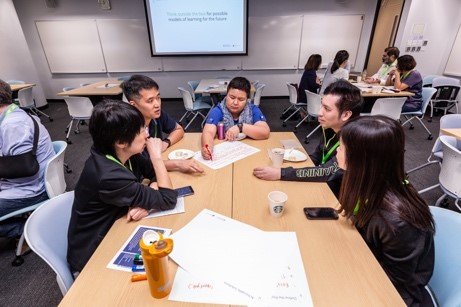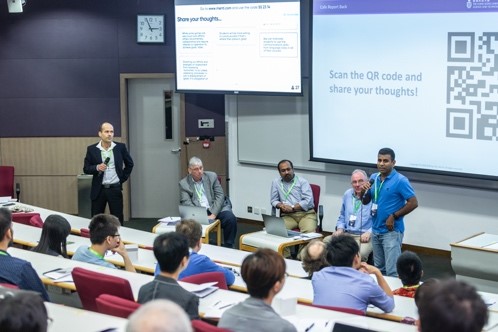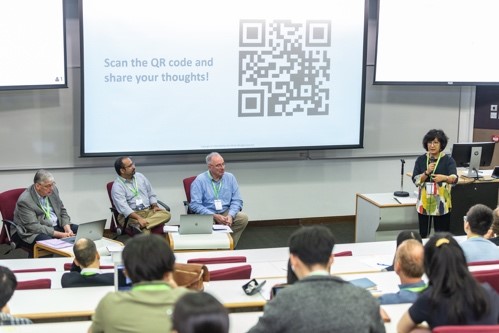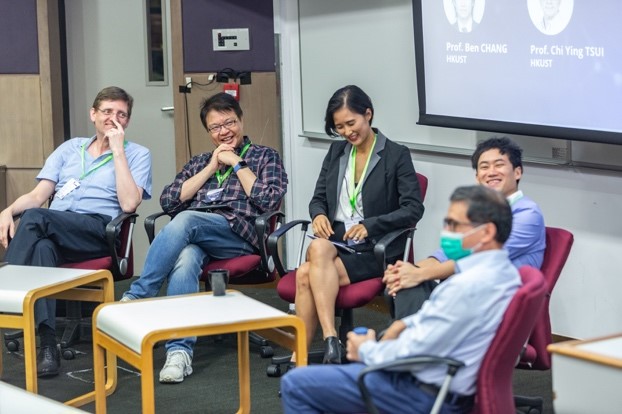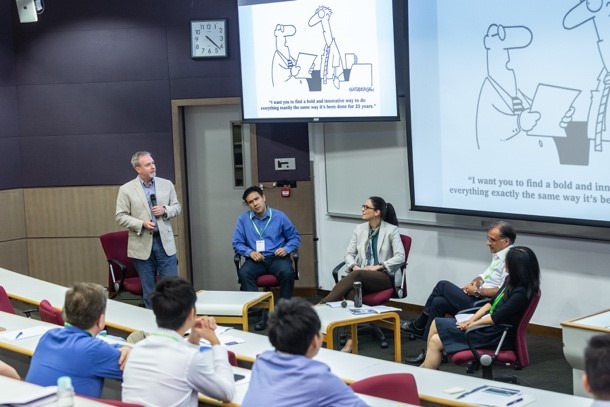Unlocking the Future of Higher Education
By Nicole Lai
“The future is unknown – pushing educators to think.” – Prof. Erwin Huang at HKUST’s Teaching and Learning Symposium 2019
With the rapidly changing environment driven by the industrial revolution 4.0, we are facing an unknown future that is intertwined with technology and globalisation. The advancement of artificial intelligence, big data, robotics, and the Internet of Things is radically changing every aspect of life and creating unforeseen possibilities as our graduates explore the future. There are various challenges we, as educators, also need to face while preparing future-ready students to cope with the ever-changing job landscape. The teaching and learning symposium – Unlocking Innovative learning: Redesigning Higher Education Beyond Boundaries, organised by the Center for Education Innovation of HKUST, attracted more than 130 educators across institutions to come together to think beyond the boundaries of the current higher education model. Teaching is challenging, as Prof. Lionel Ni addressed at the beginning of the event, but this is our obligation to nurture our future talents with necessary mindsets and skill sets for the 21st century.
Illustrating Innovative Programmes for Higher Education 4.0
To cultivate students with metacognitive competencies and multi-disciplinary knowledge, knowing what innovative approaches can be done to the programme design is essential. The ‘Innovation Illustration’ session brought together three unique programmes to share ideas of possible new learning models that address the 21st Century learning needs. Prof. Roger Cheng illustrated how HKUST X Minerva Scholars Program is designed to foster students’ transferable competencies across disciplines by turning these competencies into intended learning outcomes. The programme enables students to integrate multiple competencies and skills into practical knowledge in solving complex problems to develop holistic habits of mind in students. Then, Prof. Samson Tse shared with us how the Bachelor of Arts and Sciences Programme (BASc) at HKU is designed to address the contemporary and future challenges by nurturing globally minded thinkers through applying integrated disciplinary knowledge to real problems. Apart from the sharing by faculty members, Mr. Thomas Narayana Swamy, a graduate from HKUST’s Individualized Interdisciplinary Major Program also shared his experience of how the programme provided him with the flexibility to tailor-make his own programme on interdisciplinary study of biology, mechanics, electronics and control mechanism. Not only did the flexibity of choice allow him to focus on his genuine interests which motivated him along the way, he is also confident that the learning experience in the innovative programme would be useful for the future.
Thinking Out of The Box: Where are the Boundaries?
Led by the panel chairs, Dr. Nigel Huckstep, Mr. Nick Noakes, Prof. Anirban Mukhopadhyay, and Prof. Pak Wo Leung, participants were gathered in two rooms in the ‘Design Café’ session where they had the opportunity to work on out-of-the-box ideas in small groups. By looking at the four core competencies: Creativity, Collaboration, Critical Thinking, and Communication, that develop 4.0 ready graduates, participants explored the gaps between the present models and future needs and came up with possible solutions to redesigning learning models for an unpredictable future. Issues on transferable skills, interdisciplinarity, learning processes, complex problem solving, virtual learning, and curriculum reforms were brought up and discussed among participants to tackle the challenges of the current education model. Five groups were chosen to present their ideas in the afternoon Report Back session moderated by the panel chairs to converge the thoughts to possible future education models.
Integrating Mindsets and Skill Sets into Learning
Last but not least, Prof. Davis Bookhart, Prof. Ben Chan, Prof. Erwin Huang, Prof. Winnie Leung, Prof. Pansy Li, Prof. Danny Marks, Prof. Mark Mihorean, Prof. Mathew Pryor, Dr. Meike Sauerwein, and Prof. Chi Ying Tsui guided two rounds of panel discussions to share their perspectives on possible ways to integrate core competencies and skills into formal learning to develop mindsets and skills of students in entrepreneurship, design, sustainability and ethics. The two panels came up with three takeaway messages: (1) It is unavoidable for us to face global challenges; (2) It is crucial to teach students how to fail smart and learn from the failure; and (3) It is essential to foster character development in the age of industry 4.0.
While there is going to be an inevitable challenge for educators and students to be future-ready, internationalising the curriculum by developing a global worldview and interdisciplinary education may be one of the possible responses to globalisation and the fast-evolving world. Besides, it should not be our sole responsibility to teach disciplinary knowledge only. We have to teach students how to teach themselves and allow failure to be designed into the learning process. Lastly, without appreciation, empathy, and the internalisation of core competencies, students are limited from learning best and thinking beyond the boundaries in a competitive globalised world. Therefore, we should bear in mind that fostering character development and leveraging the advancement of technology are of equal importance in the future.
Cite this item
Lai, N. (2019, Aug). Unlocking the Future of Higher Education: Beyond Boundaries. CoP – ITL Buzz, 7. Retrieved from https://www4.talic.hku.hk/cop-itl/whats-happening/enewsletters/issue-07/unlocking-the-future-of-higher-education/.



